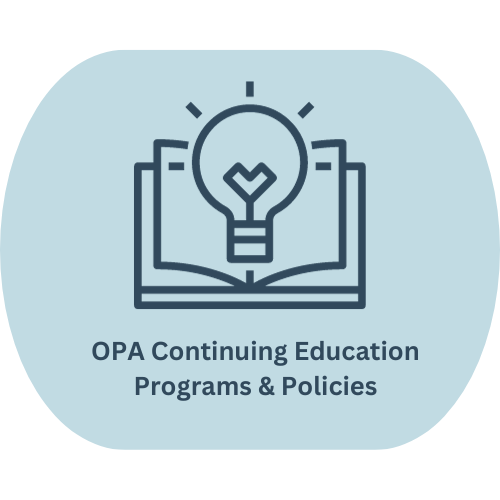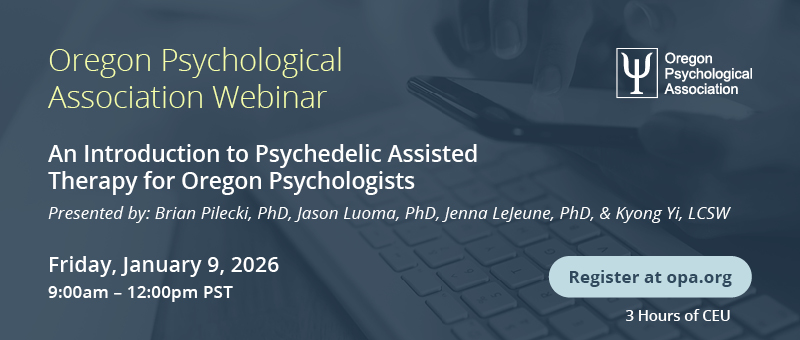|
|
Have questions? Please email [email protected].
OPA 2025 Annual Conference
More information about OPA's 2025 Annual Conference coming soon!
OPA Webinar Schedule
Click the links for more information about the corresponding CE offering.
January 9, 2026 | 9:00 AM - 12:00 PM
An Introduction to Psychedelic Assisted Therapy for Oregon Psychologists presented by Brian Pilecki, PhD, Jason Luoma, PhD, Jenna LeJeune, PhD, Kyong Yi, LCSW
February 13, 2026 | 9:00 AM - 12:00 PM
Relieving Distress Caused by Voices, Visions, and Other Altered Perceptions presented by Ron Unger, LCSW
An Introduction to Psychedelic Assisted Therapy for Oregon Psychologists
Presented by Brian Pilecki, PhD, Jason Luoma, PhD, Jenna LeJeune, PhD, Kyong Yi, LCSW
January 9, 2026 | 9:00 AM - 12:00 PM
Attend via Zoom or Recorded Option
REGISTER HERE
MORE INFORMATION HERE
Presentation Description/Summary:
Psilocybin-assisted therapy is emerging as a promising treatment for depression, alcohol and substance use disorders, end-of-life distress, and other mental health conditions. With over 200 clinical trials currently underway, the research base continues to expand across diverse therapeutic applications in both mental and physical health. While Oregon was the first state to legalize facilitated psilocybin sessions, Oregon Psilocybin Services remains significantly underutilized by local residents, with most clients traveling from out-of-state.
This workshop will provide psychologists with an evidence-based foundation for understanding psilocybin-assisted therapy, including current research on clinical outcomes and mechanisms of therapeutic change. Participants will gain practical knowledge about Oregon's psilocybin service delivery model and learn how to collaborate effectively with psilocybin facilitators to ensure seamless continuity of care for their clients.
Learning Outcomes:
Key learning objectives include identifying appropriate candidates for psilocybin sessions, recognizing contraindications and risk factors, and developing referral protocols that support optimal therapeutic outcomes. Attendees will leave equipped with the knowledge needed to make informed decisions about integrating psilocybin services into their clinical practice and supporting clients throughout the process of preparing for, experiencing, and integrating from psilocybin.
This session is designed for mental health professionals seeking to understand how psilocybin services can complement traditional therapeutic approaches within Oregon's regulated framework
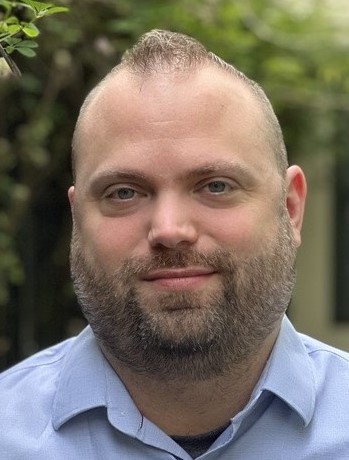
Dr. Brian Pilecki is the Clinical Services Manager and an Associate Scientist at the Portland Institute of Psychedelic Science, a subsidiary of Portland Psychotherapy Therapy Clinic, Research, and Training Center. He is an active researcher and a study therapist on several clinical trials including the investigation of the use of MDMA-assisted therapy for the treatment of social anxiety disorder. Brian is also an instructor for Fluence, a leading psychedelic training organization where he provides training to psilocybin facilitators in Oregon or to study therapists in clinical trials across the country. He is a licensed psilocybin facilitator in the state of Oregon and is co-founder of Perspective Retreats which offers group psilocybin retreats in the Netherlands. Brian is a co-founder of Portland Integration Network, a network of professionals offering specialized care related to psychedelics in Oregon. He is also the author of the book ACT-Informed Exposure for Anxiety and co-host of Altered States of Context, a podcast about psychotherapy and psychedelics.

Dr. Jason Luoma is CEO of Portland Psychotherapy Clinic, Research, & Training Center and Director of Research at the Portland Institute for Psychedelic Science (pipsinstitute.com). He also serves as Associate Scientist at Oregon Research Institute and affiliate faculty at Oregon Health & Science University. His research focuses on shame, self-stigma, and human connection, particularly using Acceptance and Commitment Therapy (ACT) and psychedelic-assisted therapy to foster greater self-compassion and belonging. Dr. Luoma was principal investigator on a clinical trial on MDMA-assisted therapy for social anxiety disorder and is starting a trial of psilocybin-assisted therapy for chronic pelvic pain. He also co-founded the Oregon Psychedelic Evaluation Nexus (OPEN; openpsychedelicscience.org) to study Oregon's psilocybin services. An internationally recognized ACT trainer and past president of the Association for Contextual Behavioral Science, he has authored over 80 scientific publications and co-written two books: Learning Acceptance and Commitment Therapy and Values in Therapy.
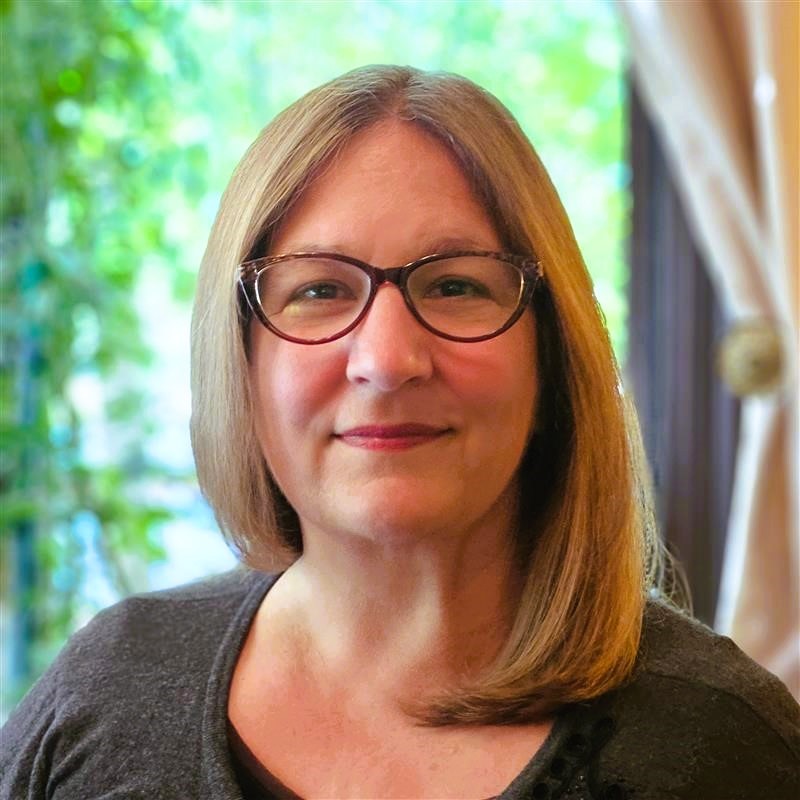 Jenna LeJeune, Ph.D., is President and co-founder of Portland Psychotherapy Clinic, Research and Training Center in Portland, Oregon. She is also a study therapist at the Portland Institute for Psychedelic Science, where she is involved in various clinical trials of psychedelic-assisted psychotherapy. As a licensed psychologist, Jenna is deeply interested in issues related to meaning, purpose, belonging, and values. In her clinical practice, Jenna specializes in Acceptance and Commitment Therapy (ACT), helping those she serves connect with what is most meaningful so they are able to live lives of purpose and integrity even in the midst of suffering. She is the co-author of the book Values in Therapy: A Clinician's Guide to Helping Clients Explore Values, Increase Psychological Flexibility, and Live a More Meaningful Life, as well as numerous other book chapters, journal articles, and other publications. Dr. LeJeune is also a Fellow of the Association for Contextual Behavioral Science and a peer-reviewed ACT trainer and provides ACT trainings for professionals around the world.
Jenna LeJeune, Ph.D., is President and co-founder of Portland Psychotherapy Clinic, Research and Training Center in Portland, Oregon. She is also a study therapist at the Portland Institute for Psychedelic Science, where she is involved in various clinical trials of psychedelic-assisted psychotherapy. As a licensed psychologist, Jenna is deeply interested in issues related to meaning, purpose, belonging, and values. In her clinical practice, Jenna specializes in Acceptance and Commitment Therapy (ACT), helping those she serves connect with what is most meaningful so they are able to live lives of purpose and integrity even in the midst of suffering. She is the co-author of the book Values in Therapy: A Clinician's Guide to Helping Clients Explore Values, Increase Psychological Flexibility, and Live a More Meaningful Life, as well as numerous other book chapters, journal articles, and other publications. Dr. LeJeune is also a Fellow of the Association for Contextual Behavioral Science and a peer-reviewed ACT trainer and provides ACT trainings for professionals around the world.
 Kyong Yi, LCSW, is a therapist and the Director of Clinical Operations at the Portland Psychotherapy Clinic, Research, and Training Center in Portland, Oregon. She specializes in treating trauma and relational concerns through the lenses of Acceptance and Commitment Therapy (ACT) and Emotion-Focused Therapy (EFT). Kyong has served as a study therapist on several clinical trials at Portland Psychotherapy, including research on MDMA-assisted therapy for social anxiety disorder. She is an approved consultant with MAPS PBC/Lykos, providing supervision and mentorship to emerging practitioners of MDMA-assisted therapy. In addition, Kyong is a licensed psilocybin facilitator in Oregon, offering both individual and group psilocybin facilitation.
Kyong Yi, LCSW, is a therapist and the Director of Clinical Operations at the Portland Psychotherapy Clinic, Research, and Training Center in Portland, Oregon. She specializes in treating trauma and relational concerns through the lenses of Acceptance and Commitment Therapy (ACT) and Emotion-Focused Therapy (EFT). Kyong has served as a study therapist on several clinical trials at Portland Psychotherapy, including research on MDMA-assisted therapy for social anxiety disorder. She is an approved consultant with MAPS PBC/Lykos, providing supervision and mentorship to emerging practitioners of MDMA-assisted therapy. In addition, Kyong is a licensed psilocybin facilitator in Oregon, offering both individual and group psilocybin facilitation.
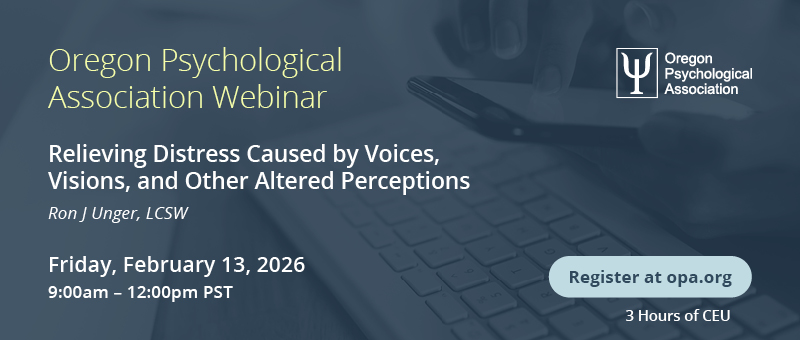
Relieving Distress Caused by Voices, Visions, and Other Altered Perceptions
Presented by Ron Unger, LCSW
February 13, 2026 | 9:00 AM - 12:00 PM
Attend Via Zoom or Recorded Option
REGISTER HERE
MORE INFORMATION HERE
Description:
We depend on our senses for accurate information about the world, but for many people, a significant portion of what they experience as sensory information has no apparent basis in our shared world. Often any such experience has been understood by professionals to be a sign of mental disorder, but research in the last quarter century shows that only some of the people who hear voices and see visions have significant difficulties due to these experiences; others get on with their lives successfully.What makes the difference? One huge factor is how people interpret and relate to these experiences. This training will explore methods of helping people shift from often unproductive or even counterproductive attempts to eliminate “hallucinations,” to constructive ways of coping. With this change in relationship, experiences like voices may fade, become less troublesome, or even shift into something the person experiences as an overall positive in their lives.A special area of focus will be the problem of compliance with command voices. Patterns of compliance dramatically increase the risk of self harm and other destructive behavior; we will review and practice approaches which have been shown to be effective in helping people reduce compliance and regain their sense of personal power.
Learning Outcomes:
Utilize an acceptance and commitment therapy approach to help people change relationships with voices, visions, and other “hallucinations.” Identify relationships between problems with voices and with difficult emotions, allowing attention to shift to facing core issues and schemas. Utilize a proven CBT strategy to help people reduce even partial or imagined compliance with command voices. Employ role plays to help people learn assertiveness with distressing voices.

Ron Unger LCSW is a therapist and consultant specializing in psychological approaches for experiences commonly called psychosis. For the past two decades he has also been an educator, reaching thousands of students through his seminars on therapy for psychosis, the intersection of trauma, dissociation and psychosis, and addressing spiritual and cultural issues within treatment for psychosis. He explores ways of understanding extreme states of mind, and possible pathways toward transformation, recovery, and healing, on his blog at recoveryfrompsychosis.org.
OPA Continuing Education Programs & Policies
The Oregon Psychological Association sponsors many continuing education programs that have been developed to meet the needs of psychologists and other mental health professionals. The Continuing Education Committee works diligently to provide programs that are of interest to the wide variety of specialties in mental health.
- APA Approval
- The Oregon Psychological Association is approved by the American Psychological Association to sponsor continuing education for psychologists. OPA maintains responsibility for this program and its content. Letters of completion will be awarded to participants who attend the entire workshop. No partial credits are given.
- OBOP Approval
- For an overview of OBOP CE information, please click here. For full information from OBOP regarding CE and licensure please click here.
- Other Mental Health Agency Approvals
- OPA workshops should be satisfactory for Oregon Licensed Social Workers' and LPC's continuing education requirements. Approval for any other licensing or regulatory bodies must be completed by the individual attendee.
Each OPA workshop is classified according to the following system:
Level 1: general or introductory content aimed at a diverse audience.
Level 2: psychologically sophisticated content, at either introductory or more advanced levels, aimed at general professional audiences.
Level 3: highly advanced theoretical or technical content, aimed at expert audiences.
Level 2 and 3 presentations will typically warrant CE credit for a licensed psychologist. Both level and number of hours for each workshop are indicated for each workshop and official letters of completion will be awarded to participants who attend the entire workshop. APA guidelines specify that no letter of attendance will be awarded for partial workshop attendance.
Level 2 and 3 offerings are typically accepted by the Oregon Board of Psychologists (OBOP). However, Oregon licensed psychologists should consult with the Oregon Board of Psychologists regarding the state laws and rules regarding continuing education in Oregon, and note that there is no pre-certification of continuing education credit by the Oregon Board of Psychologists. If you have questions about whether or not OBOP may accept a class for CE credit you can contact them at 503.378.4154.
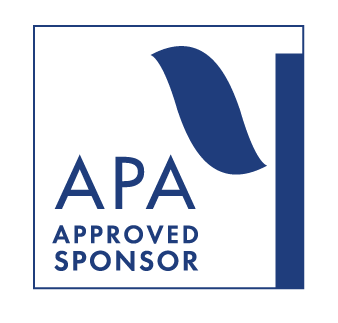
Diversity CE Offerings
Cultural Competence Homestudy courses are offered by the New Mexico Psychological Association (NMPA) to OPA members for a fee. Questions should be directed to the NMPA. Courses include: Cultural Competency Assessment (1 CE), Multicultural Counseling Competencies/Research (2 CEs), Awareness-based articles (3 CE), Knowledge based articles (3 CE), Skills-based articles on counseling (3 CE) and Skills-based articles on assessment (3 CE). Click on the link above to get started.
Webinar Policies & Information
In order to register for OPA webinars on-line you will need a credit card for payment to complete your order. Please review the cancellation policy for each event carefully.
All OPA educational events are provided in a virtual format only. If you are unable to attend virtually the day of the webinar, you can now register for the recorded only version and a link to the recording of the webinar will be emailed to you approximately one week after the webinar concludes.




